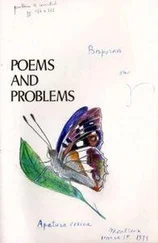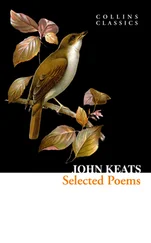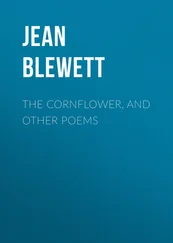John Keats - Poems 1817
Здесь есть возможность читать онлайн «John Keats - Poems 1817» весь текст электронной книги совершенно бесплатно (целиком полную версию без сокращений). В некоторых случаях можно слушать аудио, скачать через торрент в формате fb2 и присутствует краткое содержание. Год выпуска: 2005, Жанр: Поэзия, на английском языке. Описание произведения, (предисловие) а так же отзывы посетителей доступны на портале библиотеки ЛибКат.
- Название:Poems 1817
- Автор:
- Жанр:
- Год:2005
- ISBN:нет данных
- Рейтинг книги:4 / 5. Голосов: 1
-
Избранное:Добавить в избранное
- Отзывы:
-
Ваша оценка:
- 80
- 1
- 2
- 3
- 4
- 5
Poems 1817: краткое содержание, описание и аннотация
Предлагаем к чтению аннотацию, описание, краткое содержание или предисловие (зависит от того, что написал сам автор книги «Poems 1817»). Если вы не нашли необходимую информацию о книге — напишите в комментариях, мы постараемся отыскать её.
Poems 1817 — читать онлайн бесплатно полную книгу (весь текст) целиком
Ниже представлен текст книги, разбитый по страницам. Система сохранения места последней прочитанной страницы, позволяет с удобством читать онлайн бесплатно книгу «Poems 1817», без необходимости каждый раз заново искать на чём Вы остановились. Поставьте закладку, и сможете в любой момент перейти на страницу, на которой закончили чтение.
Интервал:
Закладка:
Stop and consider! life is but a day;
A fragile dew-drop on its perilous way
From a tree's summit; a poor Indian's sleep
While his boat hastens to the monstrous steep
Of Montmorenci. Why so sad a moan?
Life is the rose's hope while yet unblown;
The reading of an ever-changing tale;
The light uplifting of a maiden's veil;
A pigeon tumbling in clear summer air;
A laughing school-boy, without grief or care,
Riding the springy branches of an elm.
O for ten years, that I may overwhelm
Myself in poesy; so I may do the deed
That my own soul has to itself decreed.
Then will I pass the countries that I see
In long perspective, and continually
Taste their pure fountains. First the realm I'll pass
Of Flora, and old Pan: sleep in the grass,
Feed upon apples red, and strawberries,
And choose each pleasure that my fancy sees;
Catch the white-handed nymphs in shady places,
To woo sweet kisses from averted faces,—
Play with their fingers, touch their shoulders white
Into a pretty shrinking with a bite
As hard as lips can make it: till agreed,
A lovely tale of human life we'll read.
And one will teach a tame dove how it best
May fan the cool air gently o'er my rest;
Another, bending o'er her nimble tread,
Will set a green robe floating round her head,
And still will dance with ever varied case,
Smiling upon the flowers and the trees:
Another will entice me on, and on
Through almond blossoms and rich cinnamon;
Till in the bosom of a leafy world
We rest in silence, like two gems upcurl'd
In the recesses of a pearly shell.
And can I ever bid these joys farewell?
Yes, I must pass them for a nobler life,
Where I may find the agonies, the strife
Of human hearts: for lo! I see afar,
O'er sailing the blue cragginess, a car
And steeds with streamy manes—the charioteer
Looks out upon the winds with glorious fear:
And now the numerous tramplings quiver lightly
Along a huge cloud's ridge; and now with sprightly
Wheel downward come they into fresher skies,
Tipt round with silver from the sun's bright eyes.
Still downward with capacious whirl they glide,
And now I see them on a green-hill's side
In breezy rest among the nodding stalks.
The charioteer with wond'rous gesture talks
To the trees and mountains; and there soon appear
Shapes of delight, of mystery, and fear,
Passing along before a dusky space
Made by some mighty oaks: as they would chase
Some ever-fleeting music on they sweep.
Lo! how they murmur, laugh, and smile, and weep:
Some with upholden hand and mouth severe;
Some with their faces muffled to the ear
Between their arms; some, clear in youthful bloom,
Go glad and smilingly, athwart the gloom;
Some looking back, and some with upward gaze;
Yes, thousands in a thousand different ways
Flit onward—now a lovely wreath of girls
Dancing their sleek hair into tangled curls;
And now broad wings. Most awfully intent
The driver, of those steeds is forward bent,
And seems to listen: O that I might know
All that he writes with such a hurrying glow.
The visions all are fled—the car is fled
Into the light of heaven, and in their stead
A sense of real things comes doubly strong,
And, like a muddy stream, would bear along
My soul to nothingness: but I will strive
Against all doublings, and will keep alive
The thought of that same chariot, and the strange
Journey it went.
Is there so small a range
In the present strength of manhood, that the high
Imagination cannot freely fly
As she was wont of old? prepare her steeds,
Paw up against the light, and do strange deeds
Upon the clouds? Has she not shewn us all?
From the clear space of ether, to the small
Breath of new buds unfolding? From the meaning
Of Jove's large eye-brow, to the tender greening
Of April meadows? Here her altar shone,
E'en in this isle; and who could paragon
The fervid choir that lifted up a noise
Of harmony, to where it aye will poise
Its mighty self of convoluting sound,
Huge as a planet, and like that roll round,
Eternally around a dizzy void?
Ay, in those days the Muses were nigh cloy'd
With honors; nor had any other care
Than to sing out and sooth their wavy hair.
Could all this be forgotten? Yes, a schism
Nurtured by foppery and barbarism,
Made great Apollo blush for this his land.
Men were thought wise who could not understand
His glories: with a puling infant's force
They sway'd about upon a rocking horse,
And thought it Pegasus. Ah dismal soul'd!
The winds of heaven blew, the ocean roll'd
Its gathering waves—ye felt it not. The blue
Bared its eternal bosom, and the dew
Of summer nights collected still to make
The morning precious: beauty was awake!
Why were ye not awake? But ye were dead
To things ye knew not of,—were closely wed
To musty laws lined out with wretched rule
And compass vile: so that ye taught a school
Of dolts to smooth, inlay, and clip, and fit,
Till, like the certain wands of Jacob's wit,
Their verses tallied. Easy was the task:
A thousand handicraftsmen wore the mask
Of Poesy. Ill-fated, impious race!
That blasphemed the bright Lyrist to his face,
And did not know it,—no, they went about,
Holding a poor, decrepid standard out
Mark'd with most flimsy mottos, and in large
The name of one Boileau!
O ye whose charge
It is to hover round our pleasant hills!
Whose congregated majesty so fills
My boundly reverence, that I cannot trace
Your hallowed names, in this unholy place,
So near those common folk; did not their shames
Affright you? Did our old lamenting Thames
Delight you? Did ye never cluster round
Delicious Avon, with a mournful sound,
And weep? Or did ye wholly bid adieu
To regions where no more the laurel grew?
Or did ye stay to give a welcoming
To some lone spirits who could proudly sing
Their youth away, and die? 'Twas even so:
But let me think away those times of woe:
Now 'tis a fairer season; ye have breathed
Rich benedictions o'er us; ye have wreathed
Fresh garlands: for sweet music has been heard
In many places;—some has been upstirr'd
From out its crystal dwelling in a lake,
By a swan's ebon bill; from a thick brake,
Nested and quiet in a valley mild,
Bubbles a pipe; fine sounds are floating wild
About the earth: happy are ye and glad.
These things are doubtless: yet in truth we've had
Strange thunders from the potency of song;
Mingled indeed with what is sweet and strong,
From majesty: but in clear truth the themes
Are ugly clubs, the Poets Polyphemes
Disturbing the grand sea. A drainless shower
Of light is poesy; 'tis the supreme of power;
'Tis might half slumb'ring on its own right arm.
The very archings of her eye-lids charm
A thousand willing agents to obey,
And still she governs with the mildest sway:
But strength alone though of the Muses born
Is like a fallen angel: trees uptorn,
Darkness, and worms, and shrouds, and sepulchres
Delight it; for it feeds upon the burrs,
And thorns of life; forgetting the great end
Of poesy, that it should be a friend
To sooth the cares, and lift the thoughts of man.
Yet I rejoice: a myrtle fairer than
E'er grew in Paphos, from the bitter weeds
Lifts its sweet head into the air, and feeds
A silent space with ever sprouting green.
All tenderest birds there find a pleasant screen,
Creep through the shade with jaunty fluttering,
Nibble the little cupped flowers and sing.
Then let us clear away the choaking thorns
From round its gentle stem; let the young fawns,
Yeaned in after times, when we are flown,
Find a fresh sward beneath it, overgrown
With simple flowers: let there nothing be
More boisterous than a lover's bended knee;
Nought more ungentle than the placid look
Of one who leans upon a closed book;
Nought more untranquil than the grassy slopes
Between two hills. All hail delightful hopes!
As she was wont, th' imagination
Into most lovely labyrinths will be gone,
And they shall be accounted poet kings
Who simply tell the most heart-easing things.
O may these joys be ripe before I die.
Интервал:
Закладка:
Похожие книги на «Poems 1817»
Представляем Вашему вниманию похожие книги на «Poems 1817» списком для выбора. Мы отобрали схожую по названию и смыслу литературу в надежде предоставить читателям больше вариантов отыскать новые, интересные, ещё непрочитанные произведения.
Обсуждение, отзывы о книге «Poems 1817» и просто собственные мнения читателей. Оставьте ваши комментарии, напишите, что Вы думаете о произведении, его смысле или главных героях. Укажите что конкретно понравилось, а что нет, и почему Вы так считаете.












